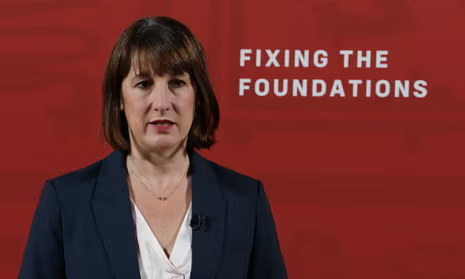
Rachel Reeves’s statement in the House of Commons was primarily intended to drive home the point that the Labour Party asserts to voters that the Conservatives have allowed the economy to spiral out of control. This is an argument that the Labour Party intends to continue pushing until the next election.
The remark that Rachel Reeves made on Monday was about utilizing the past to justify the future. This statement marked the most significant departure from the program for government that Labour had spent months crafting and articulating to people.
It had been less than a month since the general election, and yet here we were, with a chancellor already announcing a series of significant budget cutbacks, pay awards that were higher than inflation, and indications of tax increases beginning in October. None of these things were included in the plan that Labor had presented.
The speech in the House of Commons not only demonstrated that the government is ready to go well beyond the pledges it made during the campaign, but it also illustrated what happens when the chancellor is forced to make difficult trade-offs.
Ms. Reeves pledged to lower winter heating payments for all pensioners, with the exception of the poorest, in addition to offering to provide the 5.5% awards that independent review groups had suggested. Overall, she promised to pay billions more in public sector pay, amounting to nine billion pounds.
The chancellor presented a package that was both weighty and significant; nevertheless, was there an excessive amount of material that obscured the primary political imperative? And does the decision to spend nine billion pounds on bigger wage packets for public sector employees invalidate her assertion that the government’s finances are in a precarious state and that more difficult decisions are required?
It was the primary objective of the address to drive home to voters the argument that the Conservatives let the economy spiral out of control in the months leading up to the election. This was done in order to frame an argument that they want to continue to utilize when it comes time for the next election.
Some people in Whitehall wanted to spread the news over a longer period of time than just one day. They wanted to announce the magnitude of the black hole and release the letter from the Office of Budget Responsibility stating that they are investigating who knew what on Monday. They also wanted to postpone the implementation of spending cuts until a later date.
In spite of this, I have been informed that officials advised them that this would not be a prudent course of action. According to one source, the Treasury was concerned that the situation was so dire that it could potentially result in a negative reaction from the market if they did not immediately announce the reduction in spending.
As a consequence of this, everything occurred on Monday, which gave detractors the opportunity to capitalize on the trade-offs. Age UK asserts that the two million retirees who are unable to bear the loss of this income are placed ahead of the millions of workers in the private sector whose pay packets have been squeezed by inflation. So, let’s see if that makes things more complicated.
It is important to note that this is not the most unfortunate of the things that Ms. Reeves will have to announce.
This year, the spending cuts only yield £5.5 billion out of the total of £21.9 billion that lies in the black hole.
This indicates that you will need to find a total of £16.4 billion just for this year alone. This sum will have to be obtained through the implementation of tax increases, welfare reductions, and spending cuts that were indicated in the budget on October 30.
This is a substantial amount, and it is done before she takes into consideration the knock-on effect that the spending shortage would have in subsequent years, as well as the manner in which this must be accounted for.
Ms. Reeves also revealed that they have not yet taken into account the one-time large compensation schemes, such as the controversy involving the Post Office and the contaminated blood, which will result in the creation of additional holes that would require the filling of multiple billions of dollars. The fact that none of this appears to be appealing is the reason why they are hoping that voters will have noticed and accepted the gloom atmosphere.
The most important question, however, is when this government will be able to make a change and begin announcing positive news.
In many respects, the announcement made on Monday represented the beginning of normal Treasury accounting to fix difficulties, the shelving of road ideas, and the planning of development programs to stabilize the accounts.
However, this could be interpreted as short-termism, and it could be a potential barrier to growth for a government that wants to appear as though it is doing everything in its power to create tax revenue in the near term in order to better support public services in the long term.
With the beginning of parliament in 1997, Tony Blair’s government was able to continue to blame its Tory heritage until the 2001 election. This continued until the very end of the legislature.
In that endeavor, Ms. Reeves played the role of Gordon Brown on Monday, and she did so with an eye toward the upcoming election from the beginning. Were the messages as clear and consistent as that, and would they be able to protect her when the political honeymoon is over?